2020 Games showcased the importance of collective compliance
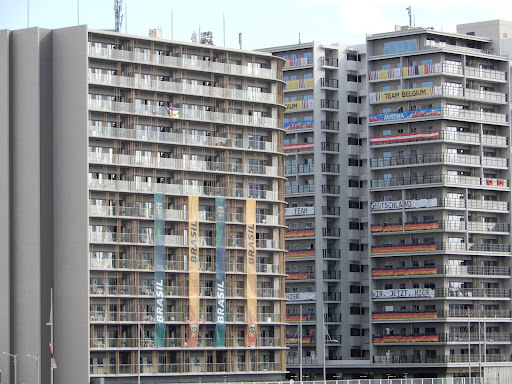
In the Olympic Village itself, athletes and other members were strongly recommended to stay in accommodation allocated by Tokyo 2020.
The much awaited Tokyo Olympics was held in August this year, bearing the title of ‘Tokyo 2020’ from its initial date, and looking a little different from the scenes that we were used to seeing in previous Games. With no cheering spectators, masked faces, and a steady 2-metre distance between each athlete, this was not the picture that anyone could have imagined in 2013, when Tokyo was chosen as the host city of the 2020 Olympic Games.
Responses from the athletes and the international scene were mixed even before the Games had begun, from those who were enthusiastic to reconnect with the world after long periods of separation due to the pandemic, to those who were skeptical of such an international event occurring during a pandemic still in full-steam. Initial preparations were officialised months before the Games, in partnership with the World Health Organisation, Government of Japan and the Tokyo Metropolitan area, as well as other experts and organisations. The Tokyo 2020 Organising Committee was put under quite a harsh spotlight, with every statement being scrutinised by other nations and the Japanese public.
Domestic responses were heavy with concern and criticism, with Japan’s vaccine rollout campaign not even finalised by the time the Playbooks were announced. As well as the steadily increasing number of daily cases, there was a growing awareness of various COVID-19 variants, increasing opposition and fear of allowing foreign athletes into the country. Medical professionals were possibly the most anxious, as the Organising Committee demanded 10,000 medical workers to be present throughout the entirety of the Games, which would be held “during the hottest time of the year” as reported by The Guardian. Many medical workers were significantly overworked, especially since more workers were urgently needed in hospitals to treat the worsening spread of the virus from around April – the start of a fourth wave of infections. Hospital capacity was exceeded in multiple areas of Japan, including in Tokyo. The Head of Japan Doctors Union, Naoto Ueyama, was quoted in The Japan Times, explaining how there was a concern towards “a Tokyo Olympic strain” forming as a result of the mass gathering of foreign athletes for the Games.
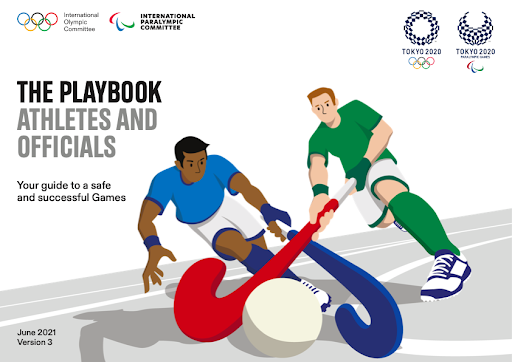
Numerous adjustments were made ahead of the Games, to safely host the first large scale international event since the start of this pandemic. Individual ‘Playbooks‘ were created collaboratively by the International Olympic Committee (IOC), the International Paralympic Committee (IPC), and the Tokyo 2020 Organising Committee for all groups participating, whether they were competing athletes or participating members of the media. The Playbooks indicated regulations and responsibilities that must be strictly followed, from 14 days before travel to Japan, up until the last day of the stay.
When the first ‘Playbook‘ was published in February 2021, several nations responded with concerns about the level of safety promised by the mentioned measures. Regulations on vaccinations were certainly a point of scrutiny in the international scene. The ‘Playbooks’ did not mandate vaccines as a part of the Games procedures, but highly encouraged every participant to vaccinate if possible. This decision worried many nations, with some national Olympic committees speaking out publicly. AP News reported at the end of April that the Australian Olympic Committee would be prioritising COVID-19 vaccinations for the athletes to ensure that all members were fully protected. New Zealand had also discussed early access of vaccines for competing members, both countries receiving some backlash from the public in regards to the vaccinations of the most vulnerable being pushed back by the Olympic athletes.
The Playbooks also covered several aspects of the safety measures implemented, from daily saliva antigen testing, basic hygiene manners like strict mask wearing to safe methods of cheering, and infection tracking systems using apps like COCOA (“Contact Confirming App”). All members arriving from outside Japan were required to take two COVID-19 tests on two separate days during the 96 hour period before the scheduled flight, with one at least 72 hours before. If any symptoms or temperature rises were recorded within 14 days before the flight, members were advised to not travel to Japan and consult a medical professional.
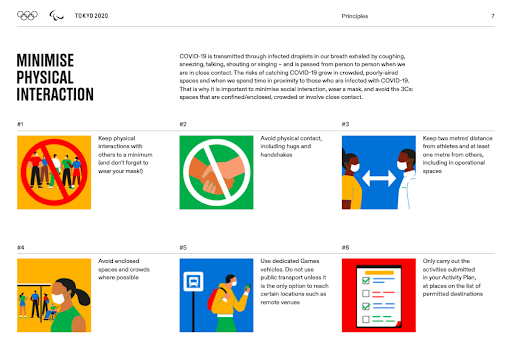
In the Olympic Village itself, athletes and other members were strongly recommended to stay in accommodation allocated by Tokyo 2020, to ensure that all guidelines related to health and safety were kept. Firm social distancing rules were placed in all spaces, including the dining areas, where seating was individually divided by acrylic boards and all members were told to wipe their table and seating area after use in consideration of the cleaning staff.
As foreign athletes started to pour into Japan in July, concerns were circulating between athletes and the other members of the degree of security felt in the Athlete Village. Cecile Landi, the coach for Simone Biles and Jordan Chiles of the US Gymnastics Team, mentioned in a tweet that they could “control the athletes and [their] safety better in a hotel setting” rather than in the athlete’s village. This statement was made after a team member, Kara Eaker, tested positive for COVID-19 and her team mate, Leanne Wong, had to be placed under quarantine in the athlete accommodations. The team decided to relocate to a near-by hotel instead, authorised by the Olympics Committee. This issue raised concerns with the level of safety in the athletes’ accommodation, where fully vaccinated athletes, like Kara Eaker, were testing positive.
Nevertheless, the case numbers amongst the athletes were reasonably low, with most of the cases reported coming from residents of Japan. Before the Games, the decision to not mandate vaccinations was also under heavy scrutiny, however, the vaccination rate amongst the athletes was over 70%, a possible reason for the low case numbers between the athletes. From the Official Olympic site, the total recorded number of positive screening tests from July 1 was 312 (as announced on 8 September 2021), out of the around 11,500 competing athletes, and additional staff members. Although the case numbers rose in Tokyo during the Olympics, this seemed to correlate to the lack of government action and public response, rather than the Games itself. Cases in other participating countries had not been affected by the athletes returning from Japan, with most nations keeping a strict quarantine procedure for all arrivals. The outcomes anticipated of new variants were fortunately not made a reality. Despite the extensive coverage prior to the Games, there were very few reports of its aftermath.
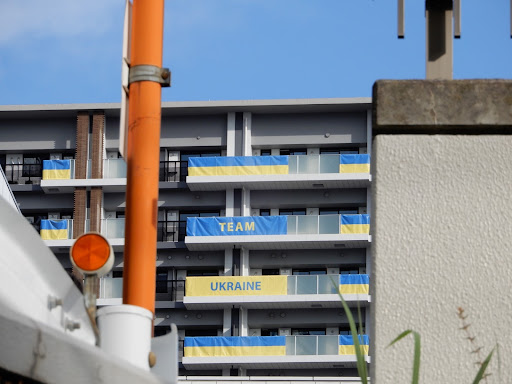
How will this Olympics affect the proceeding Games? The upcoming Winter Olympics, Beijing 2022 in February, will take place without any foreign spectators. There is no official mandate for vaccinations, though a 21-day quarantine would be compulsory for those who are not vaccinated. Due to the high progress of vaccinations domestically, spectators from mainland China will be given the opportunity to purchase tickets. The IOC and the IPC, along with the organising committees in China, confirmed this decision on the official Olympic site, stating that this is “to ensure the safe holding of the Games this winter.”
The measures that took place at Tokyo 2020 were not entirely disastrous as predicted, and will perhaps be a foundation for major sports events to occur in this ongoing pandemic. The restrictions “[came] as a package”, as commented in the The Japan Times by Brian McClosky, the lead adviser for the “bubble” system to contain potential infections at the Games. Before the Games, the decision to not mandate vaccinations was under heavy scrutiny, nevertheless, the vaccination rate amongst the athletes was over 70%. No one rule worked on its own to protect the health and safety of all involved.
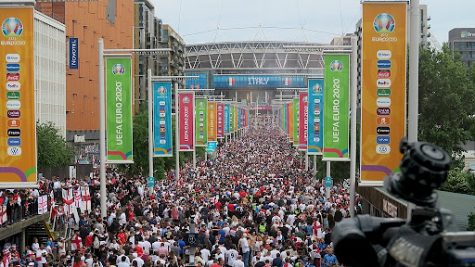
We were able to see the outcome of events taking place without the appropriate measures from the Euro 2020 match in Wembley Stadium, UK. The England team played against Italy in the final of Euro 2020 on July 1, with over 60,000 spectators in the stadium – about 75% of the full stadium capacity. Face coverings were permitted to be taken off when seated, with a majority of COVID-19 restrictions planned to be lifted in the country on July 19. Though a proof of full vaccination or a negative lateral flow test was necessary, there was little attention paid by the UEFA Euro 2020 to restrictions and policing of the spectators in all of the stadiums used during the length of the tournament. This then resulted in over 9, 000 cases in the UK linked to the Euro 2020 games, with 3,036 cases being discovered just two days after the match as reported by the Guardian. In these mass infection events, those who attended were also highly exposed to the virus during the travelling periods of their journey, not just during the games. People around the attendees on public transport, in indoor public spaces, and inside homes were at high risk of transmission as well, heightened by the country’s frighteningly relaxed attitude towards the virus.
Tokyo 2020 quietly came to an end. Regardless of the anxieties and concerns beforehand, the Games unexpectedly became the ideal trial run for hosting international sporting events during a pandemic. The Games showcased the importance of collective compliance to prevention regulations – a much needed reminder for the rest of the world.






































